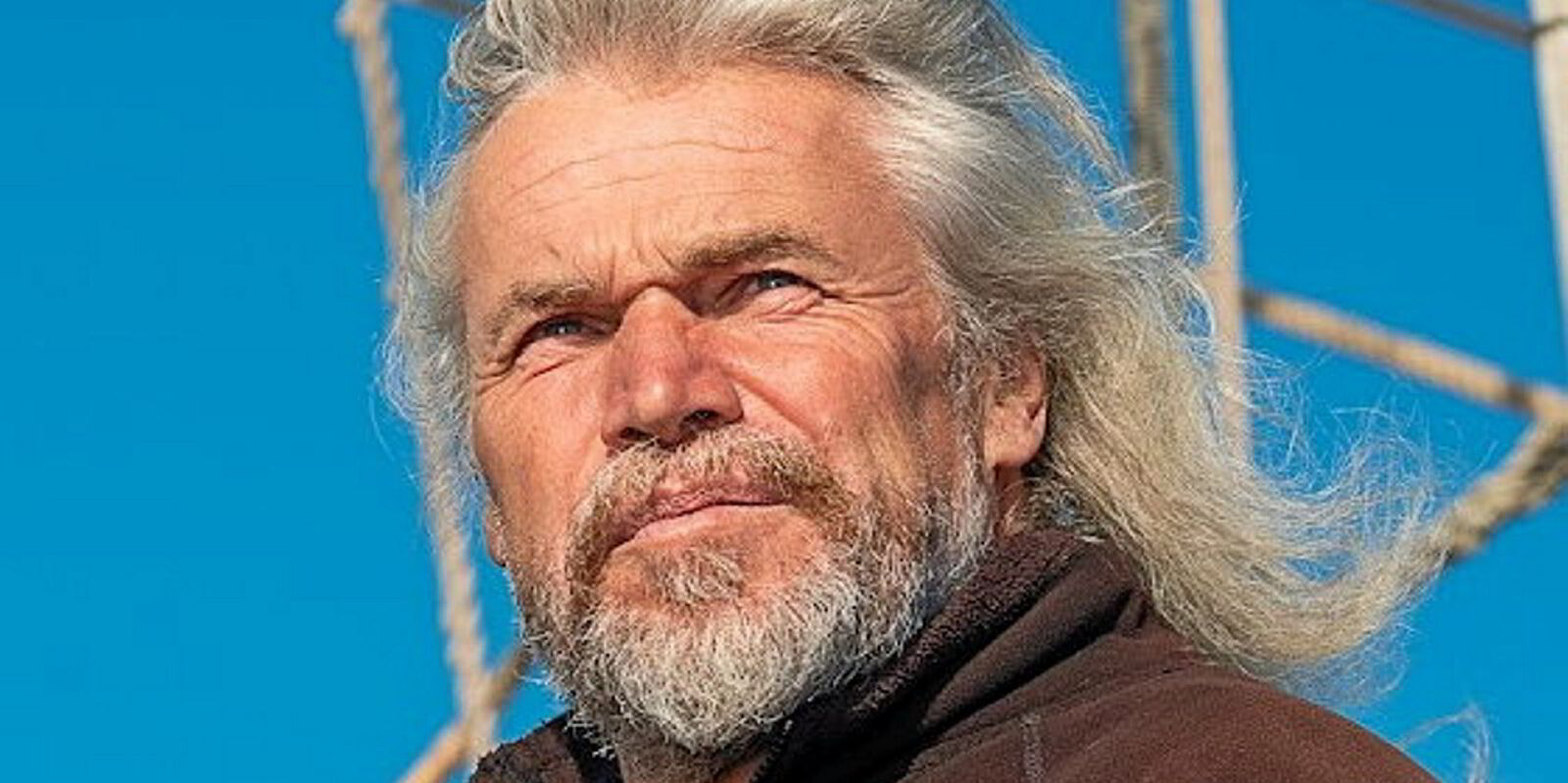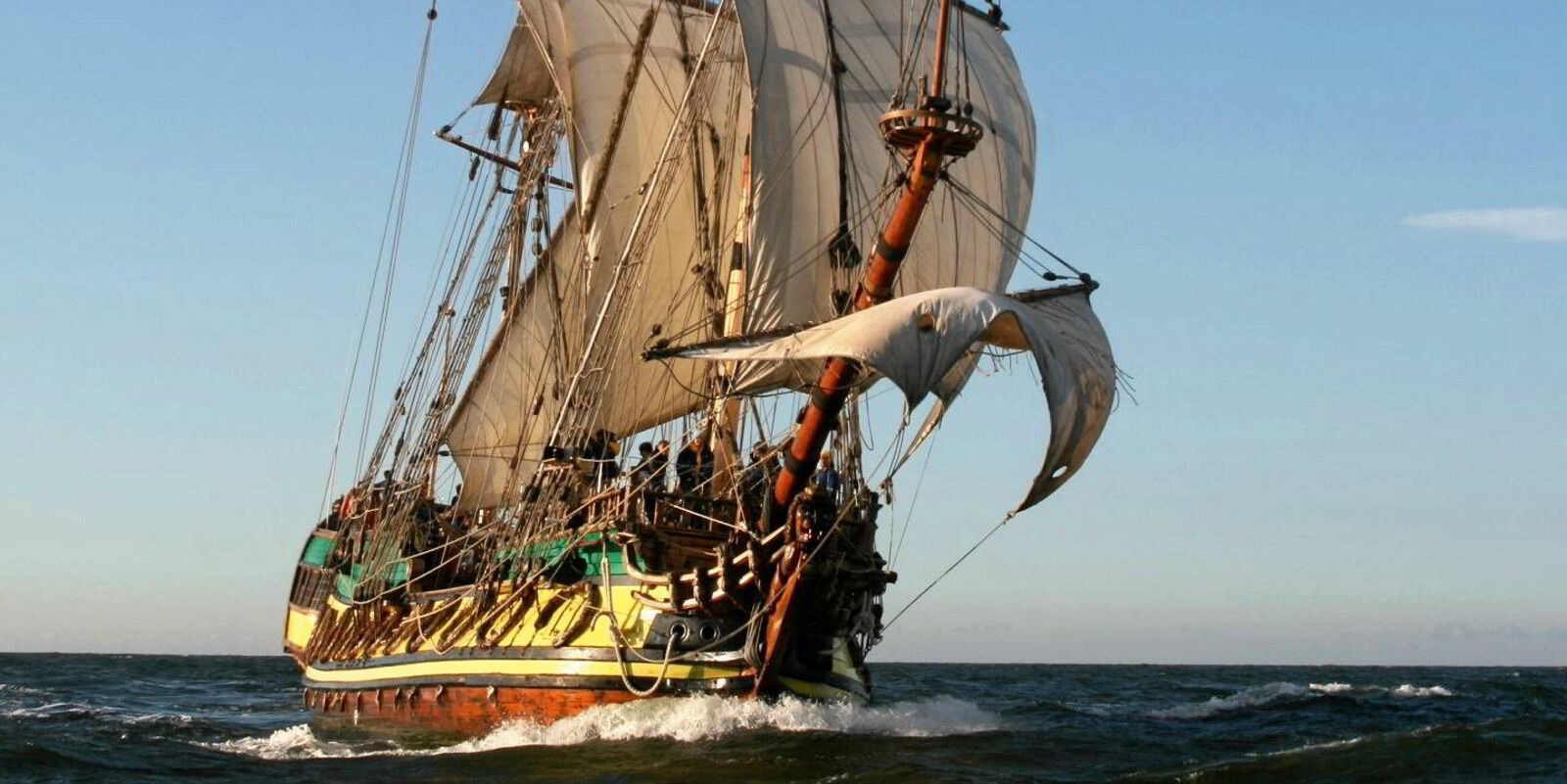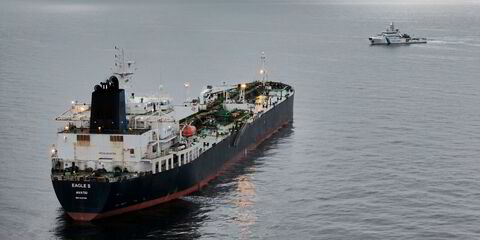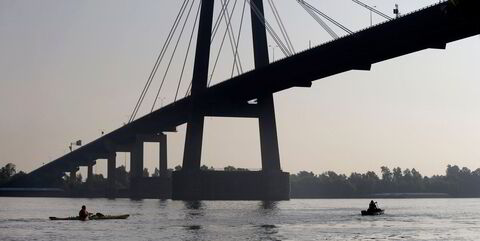The owner of a replica of the first ship of the Russian Imperial Navy has lost the opening stage of a legal battle to lift a European port ban, putting its long-term future as a training ship in jeopardy.
The formerly Russian-flagged sailing ship Shtandart has been caught up in European Union sanctions imposed following the invasion of Ukraine despite working for the last 15 years in countries of the bloc, said its captain, Vladimir Martus, a Russian national of Ukrainian descent.
European Union sanctions introduced a port ban on Russia-flagged vessels, and those reflagged after the invasion of Ukraine, in April 2022.
The sailing vessel, a replica of the flagship of Peter the Great originally built in 1703, changed its flag state to the Cook Islands in June 2024, but later that month the EU included replicas of historical ships among the vessels targeted under the measure.
The shipowner, master and manager sought a fast-track decision from the Court of Justice of the European Union to try to have the port ban lifted.
The decision was opposed by the European Council and rejected by the court this week.
Martus is now hoping that a full ruling in the coming months will reverse a decision and allow the ship to call into EU ports.
But he said the ship was running out of money after being barred from the Brest international maritime festival in July owing to the sanctions.
“We’ve had practically no income since July and we’ve been relying for some time on our savings,” said Martus.
“We hope to survive until the court decision. We hope we can survive until April.”

He said the future was unclear after that date. The replica ship was completed in 1999 in St Petersburg following public donations and work by volunteers. It is now owned by a Finnish citizen, said Martus.
The vessel has spent the last 15 years in Europe appearing at maritime festivals and working as a leisure and training ship.
It is currently anchored of La Rochelle, France, and receives supplies of water and visitors via dinghy from the mainland as it cannot call into ports.
The multinational crew has been cut to eight and has to ration water supplies because of the problems of resupplying the vessel.
It continues to offer training to youngsters aged 16 to 30 but the logistics of bringing them to the vessel have become harder, he said.
“I am half-Russian, half-Ukrainian and we have an international crew,” said Martus. “None of us are supporting Russia in the war.
“Our main activity is training and teaching young people to work with their hands. It’s a good motivation for young people to join the merchant navy.
“Our industry needs more sailors. We would be of very good use for the country that allows us – but it definitely won’t be Russia in the current situation.
“We left Russia in 2009 and for 15 years we have been like a homeless child.”
Martus said he was exploring options of taking the ship to the UK, which has its own autonomous sanctions programme against Russia.
Read more
- Tsakos sees peace dividend for shipping from peace and reduced sanctions
- IMO should focus on shadow fleet not decarbonisation, Frontline chief says
- Tanker owners braced for fresh blow with Opec set to keep oil tap turned down
- European Union has 48 tankers in sanctions sights in effort to choke off Russia’s oil revenue
- Expect more fines for Russia sanctions breaches, says UK’s top enforcer




